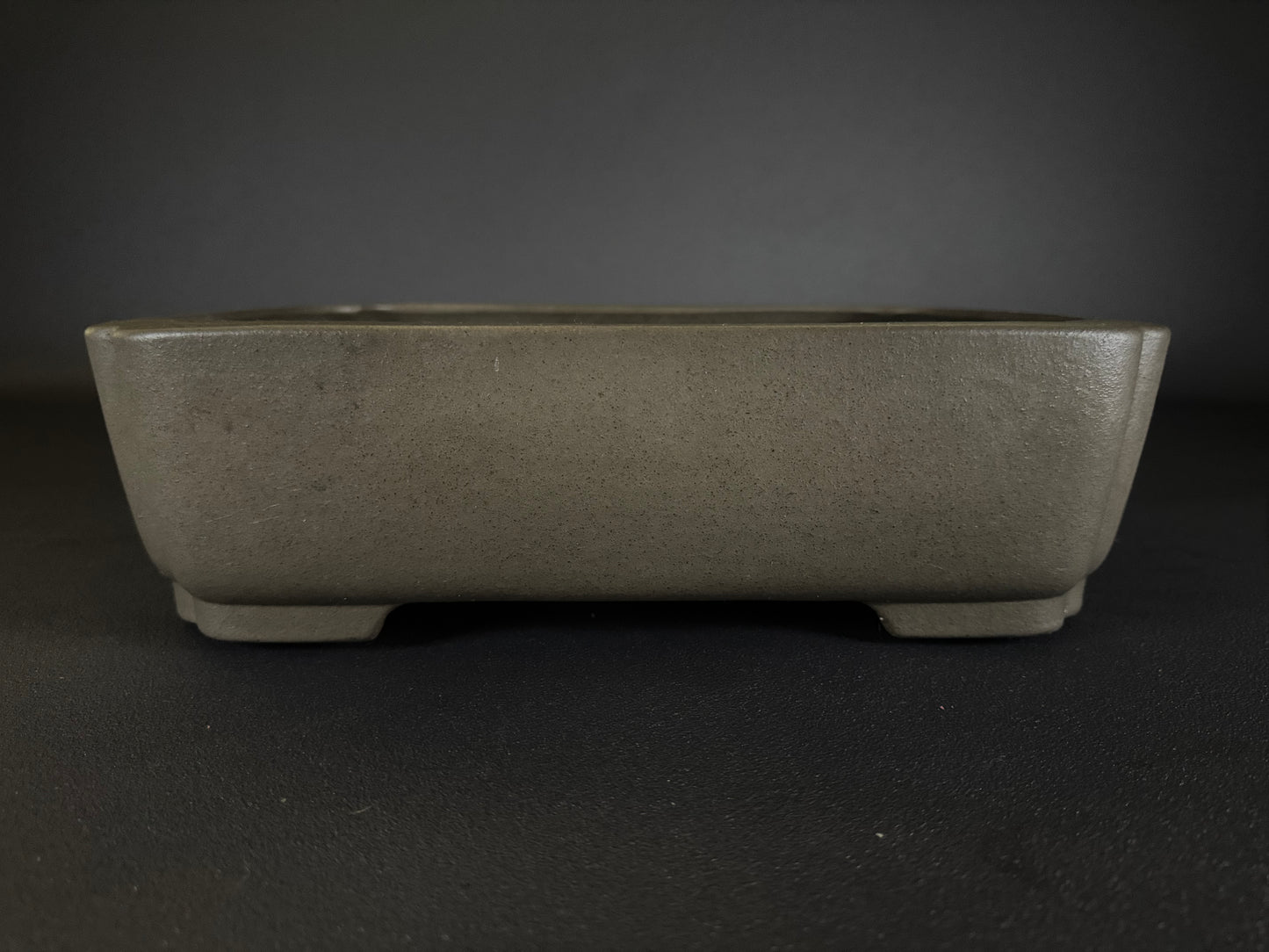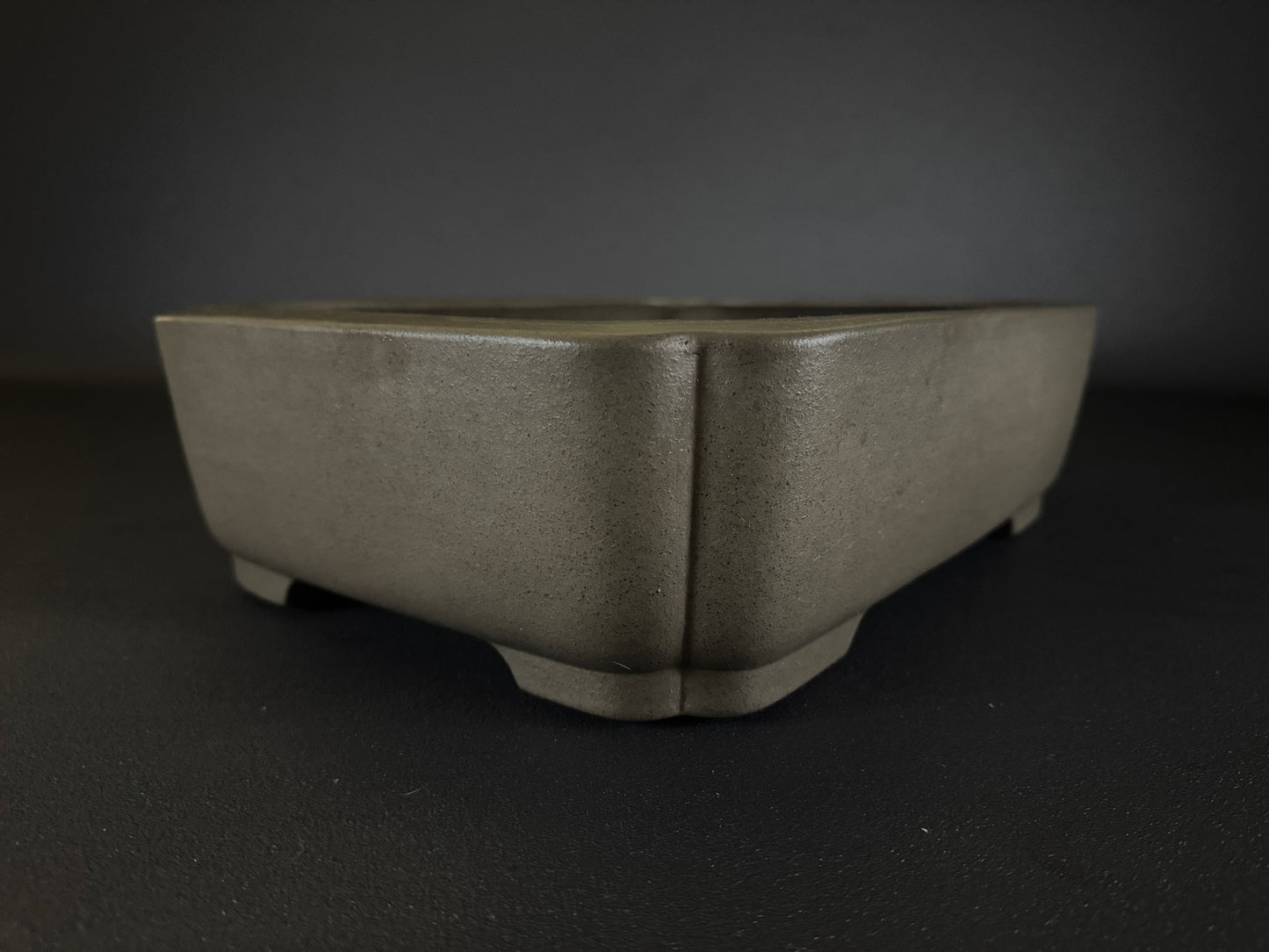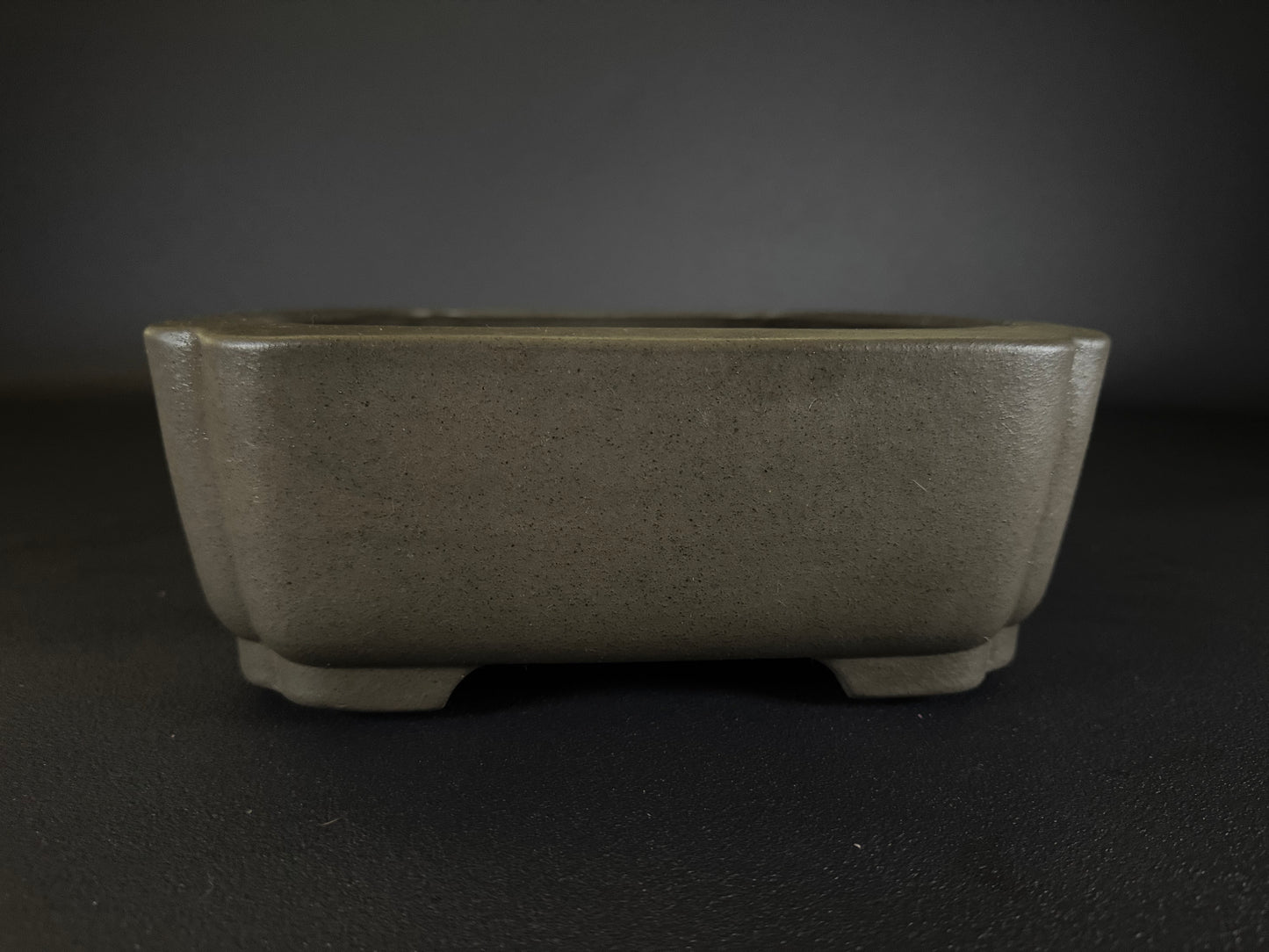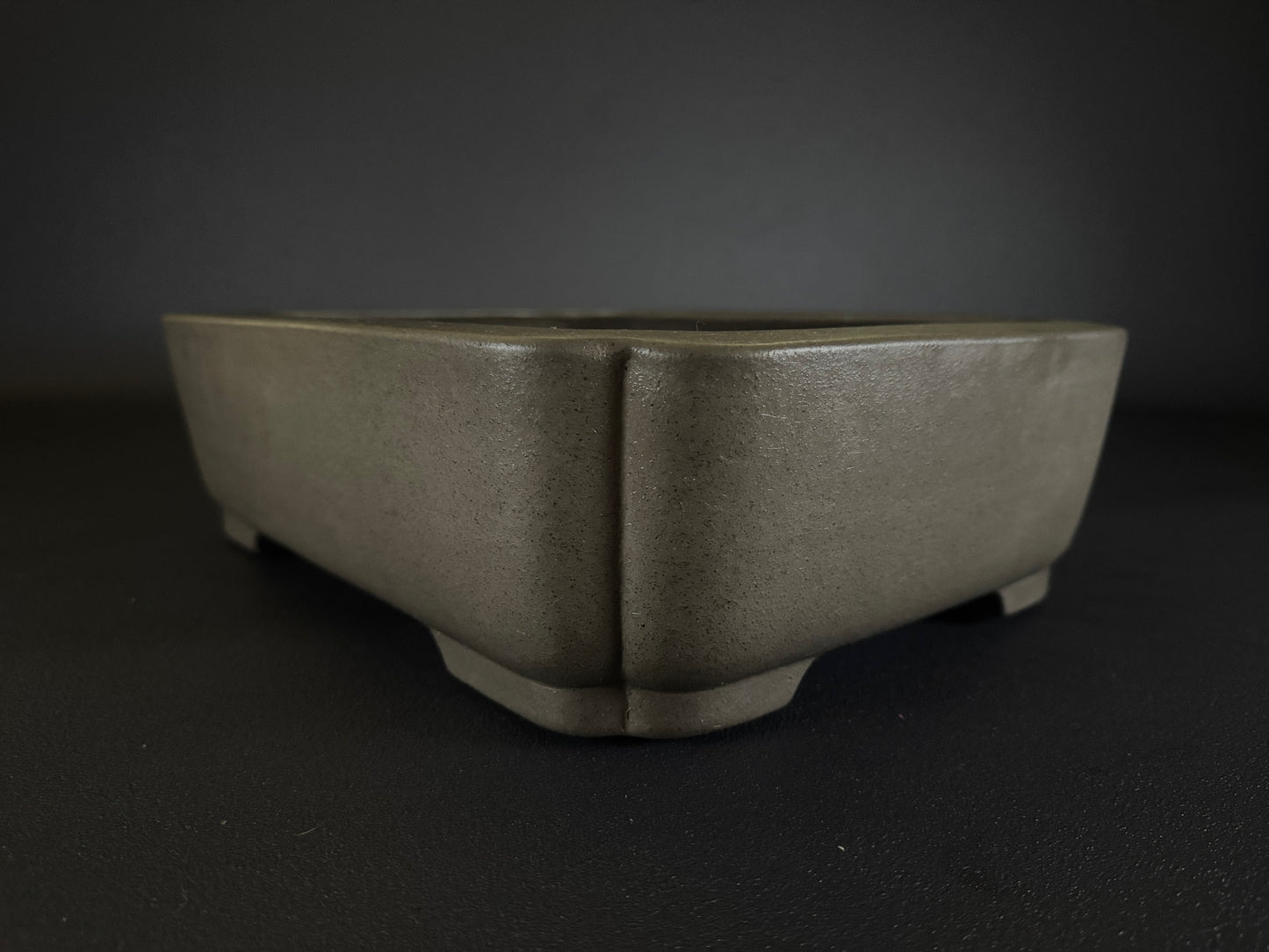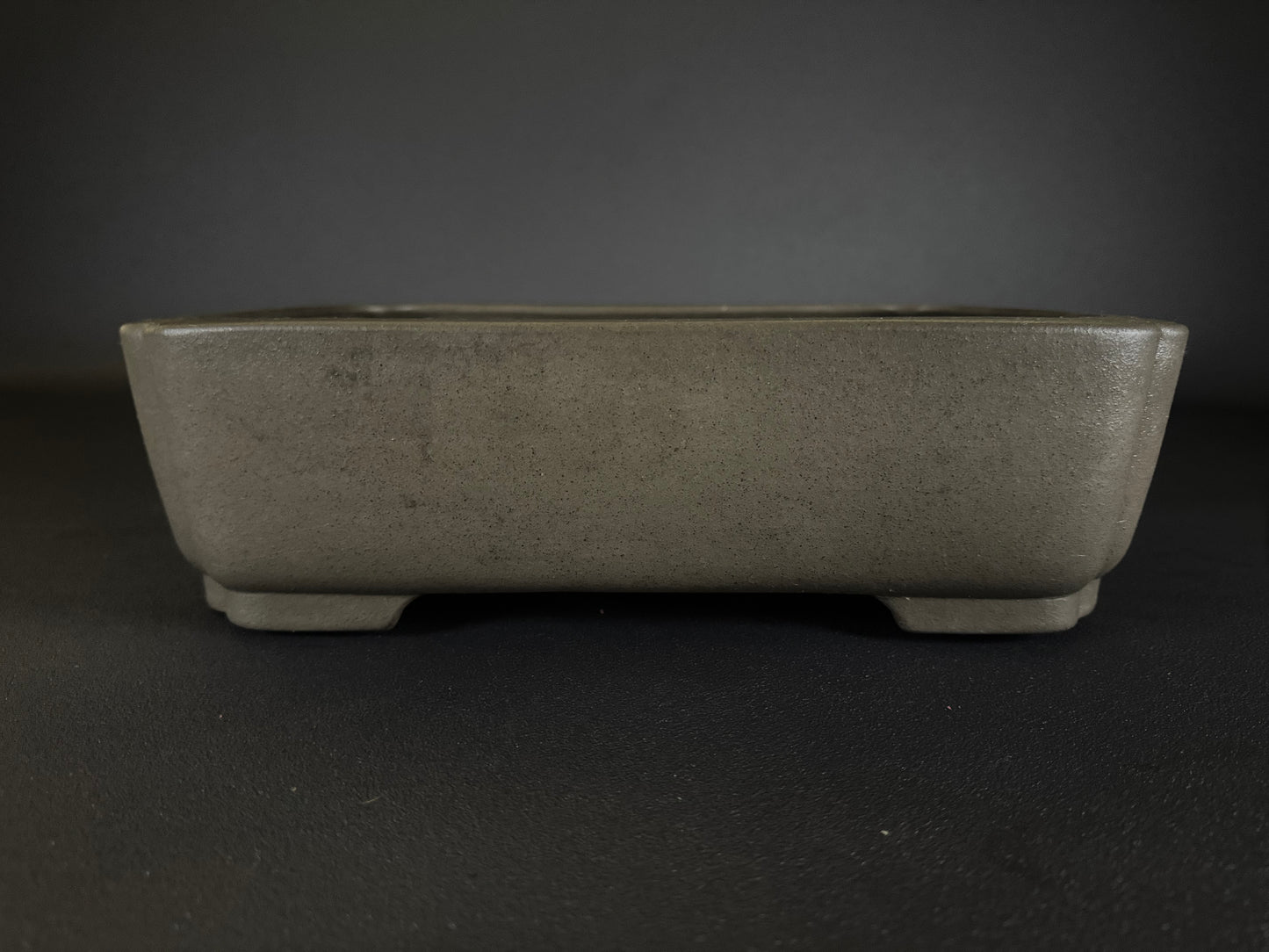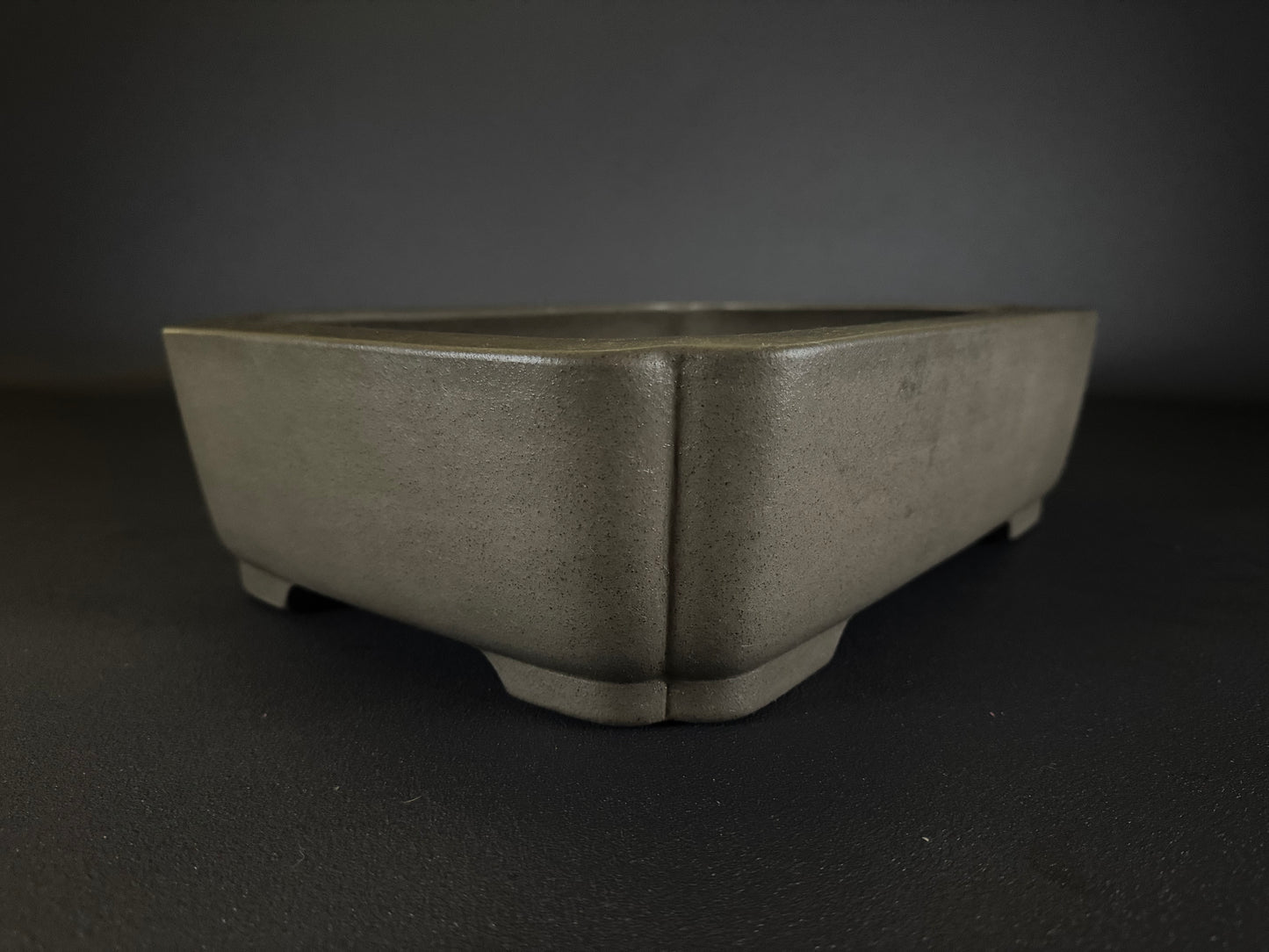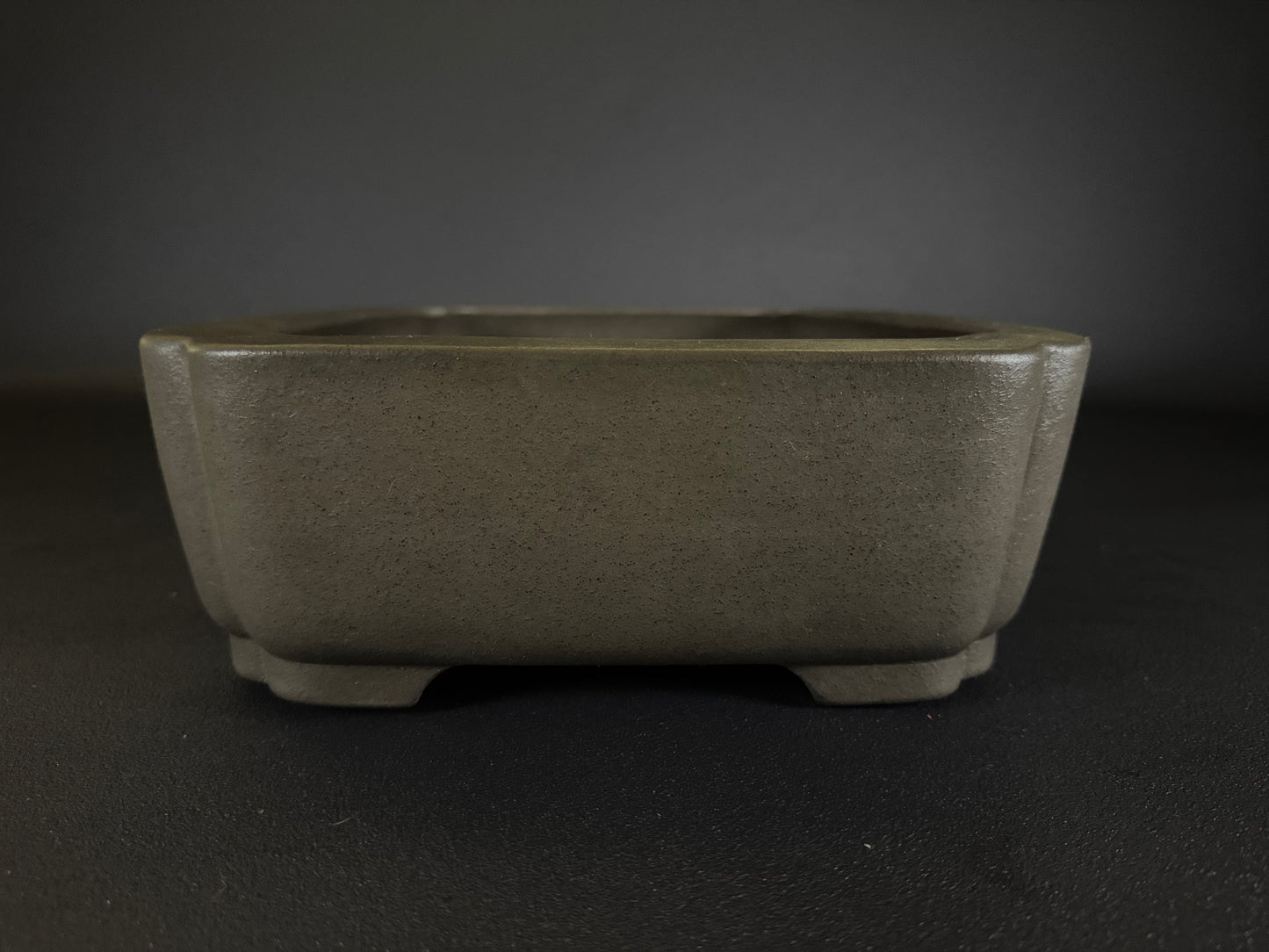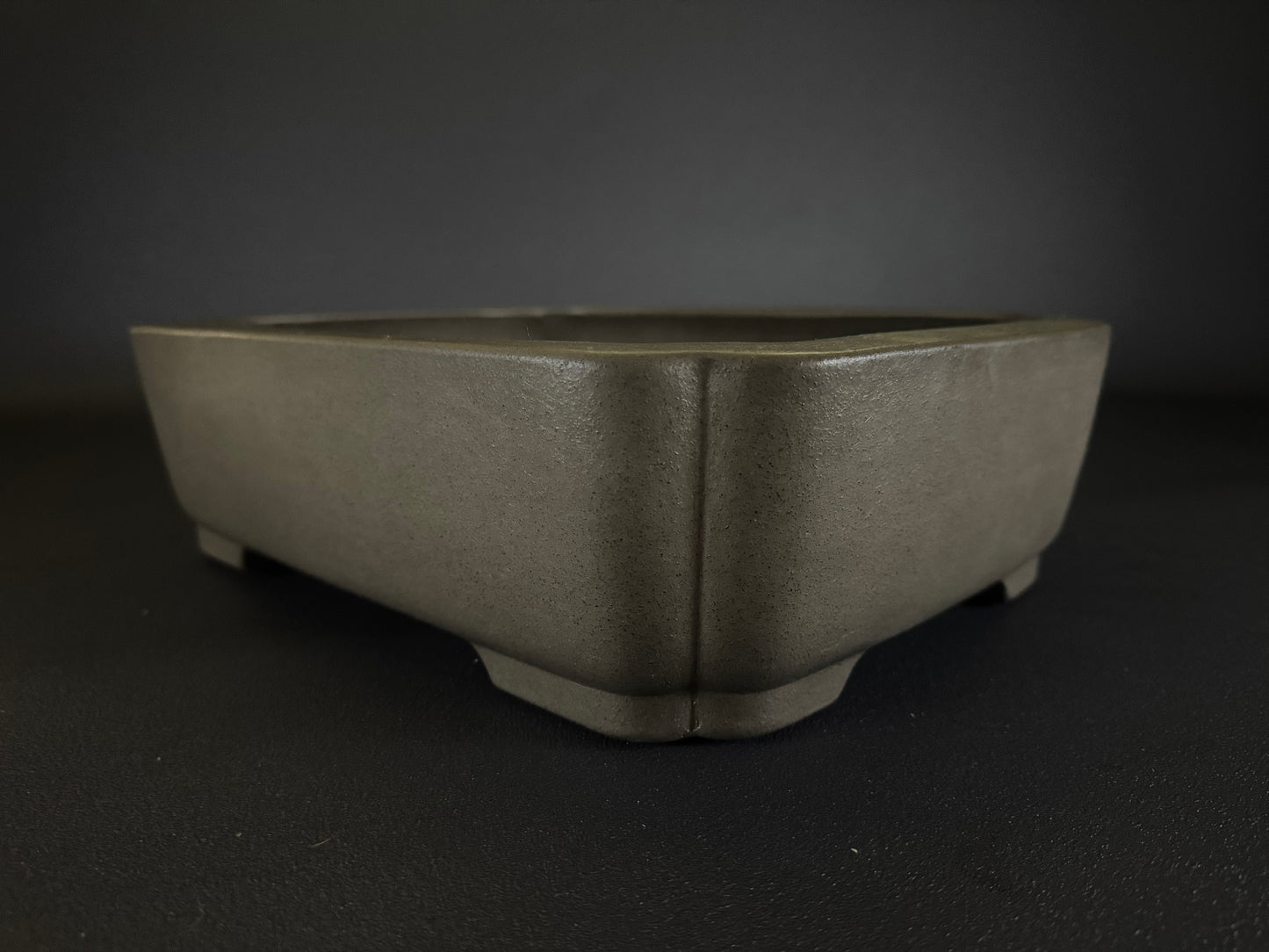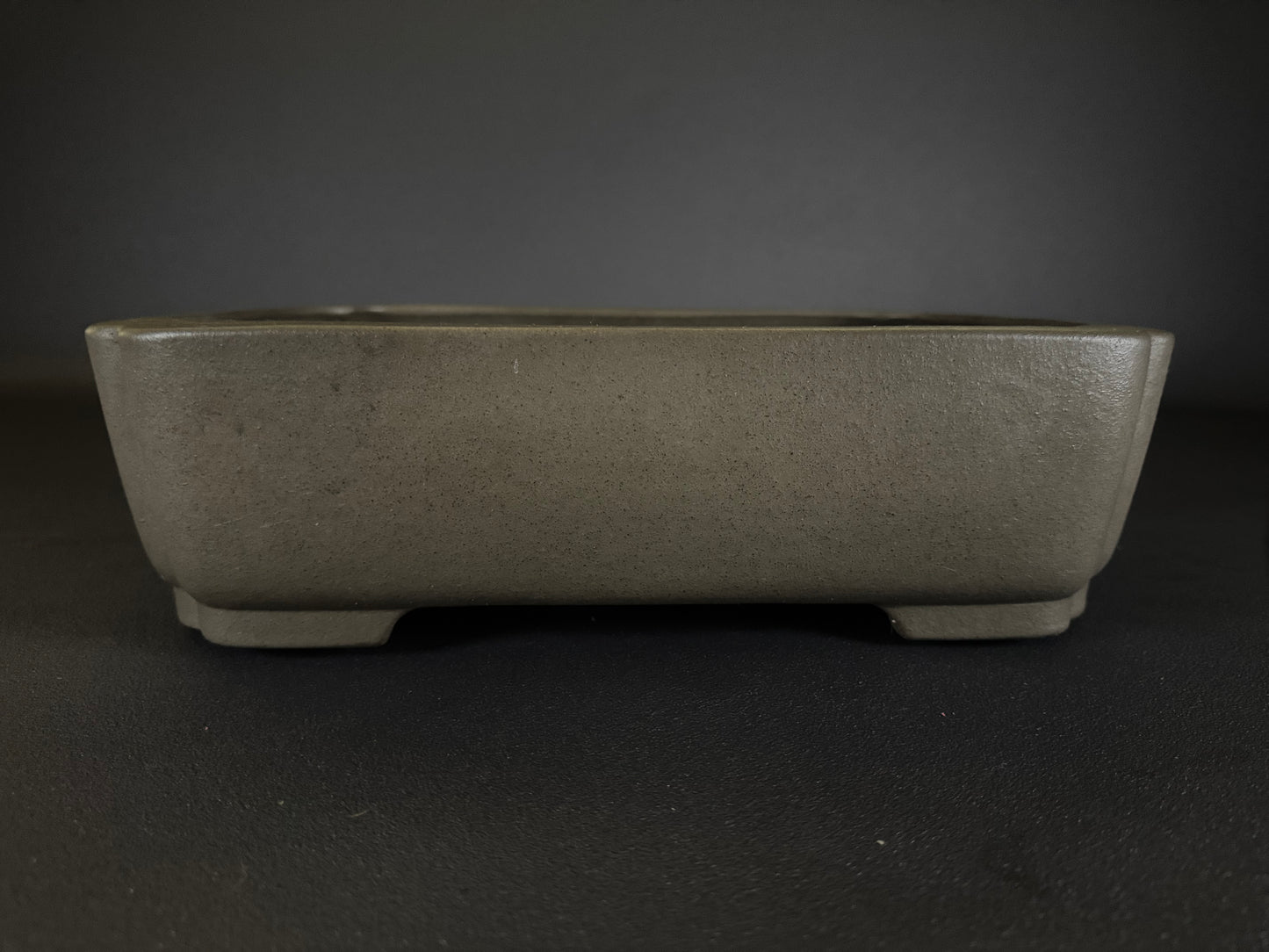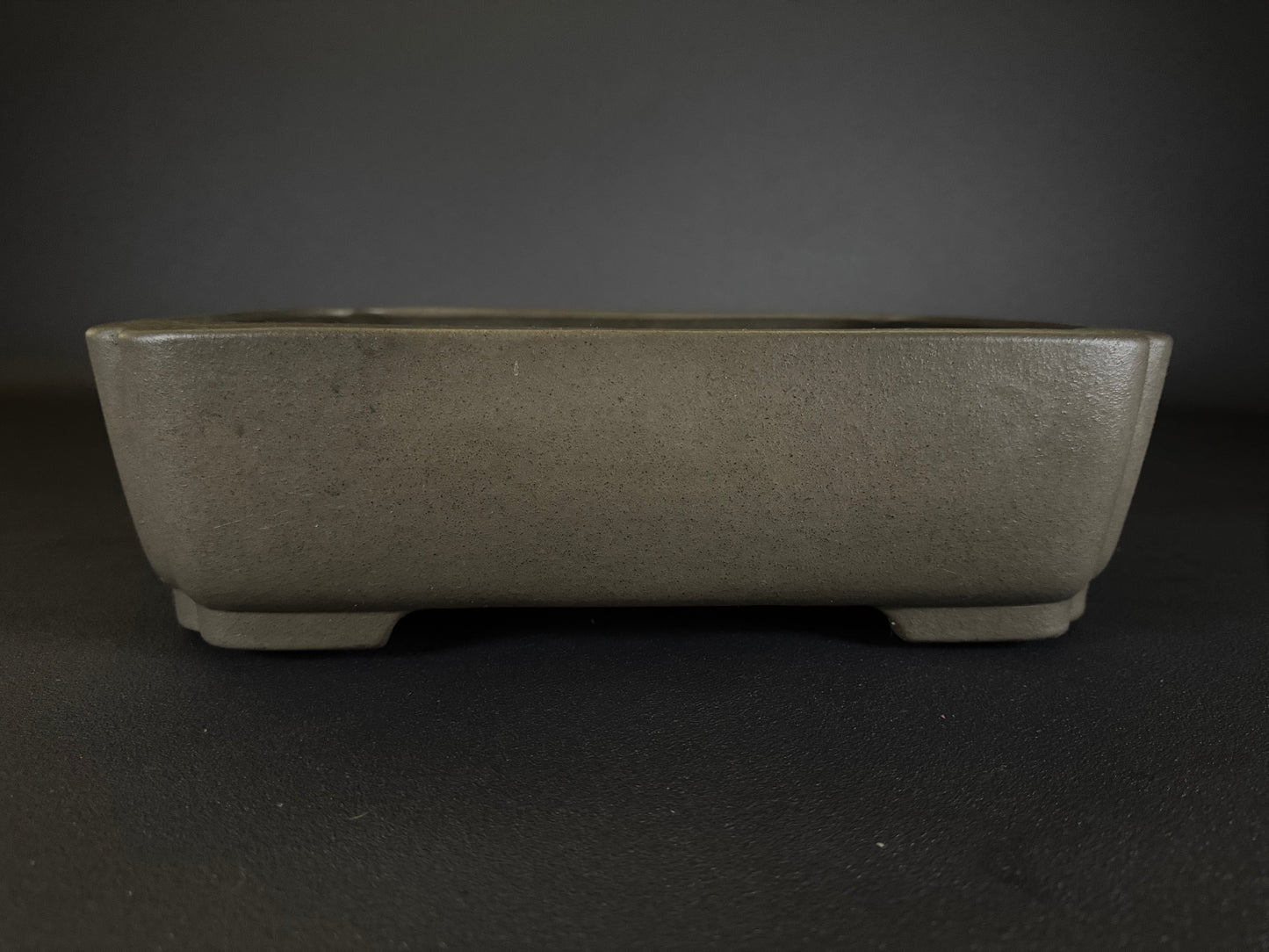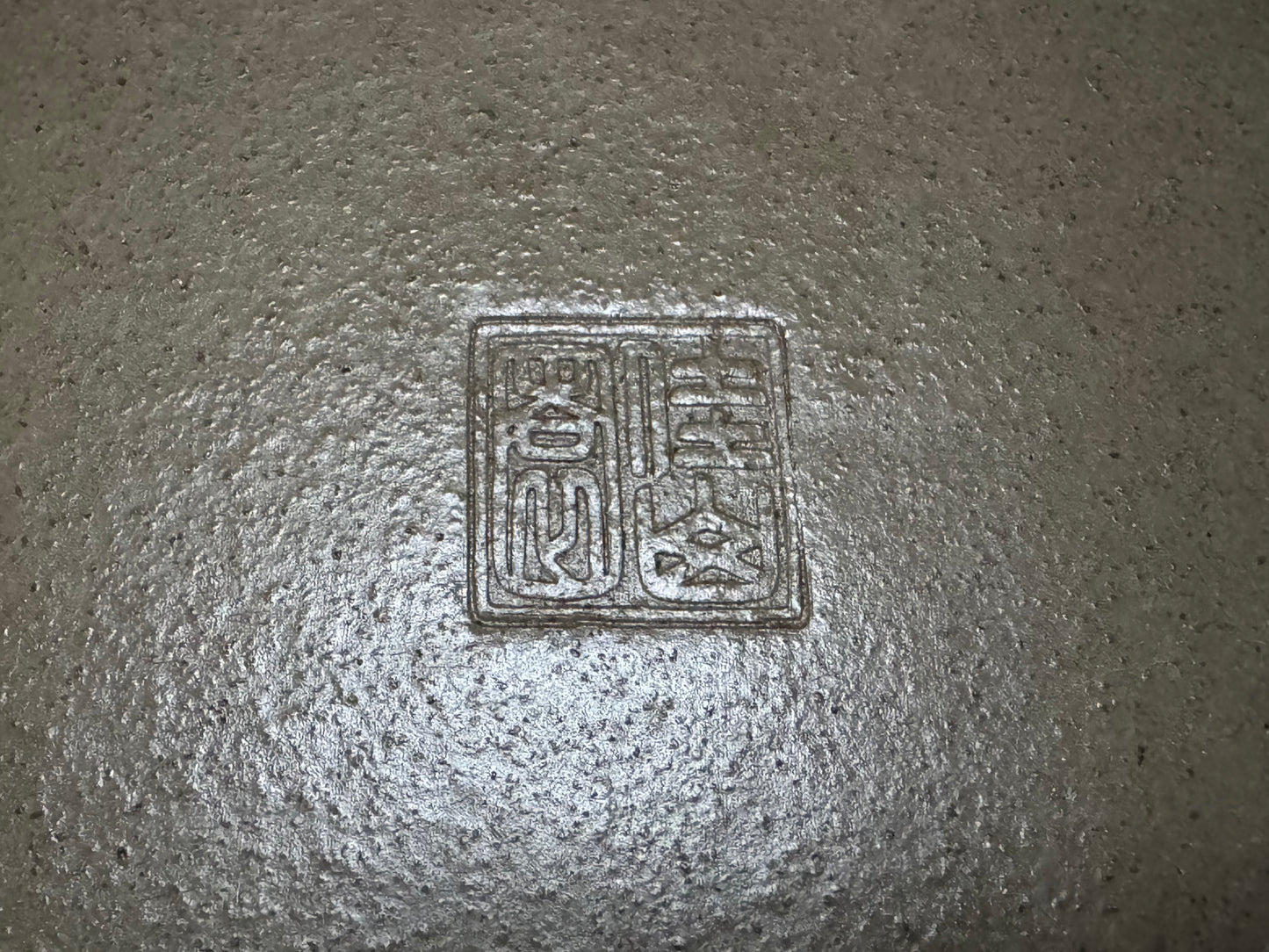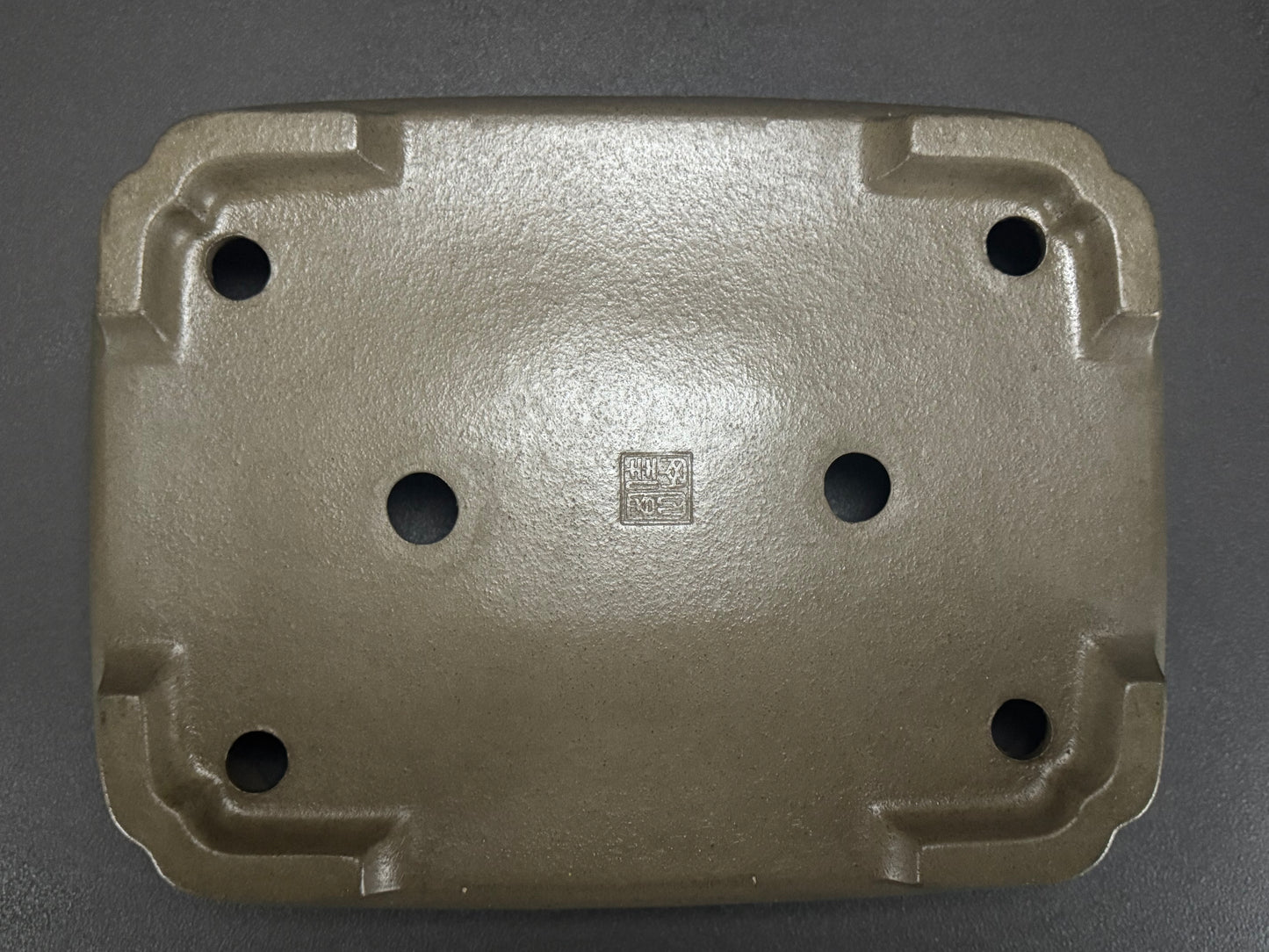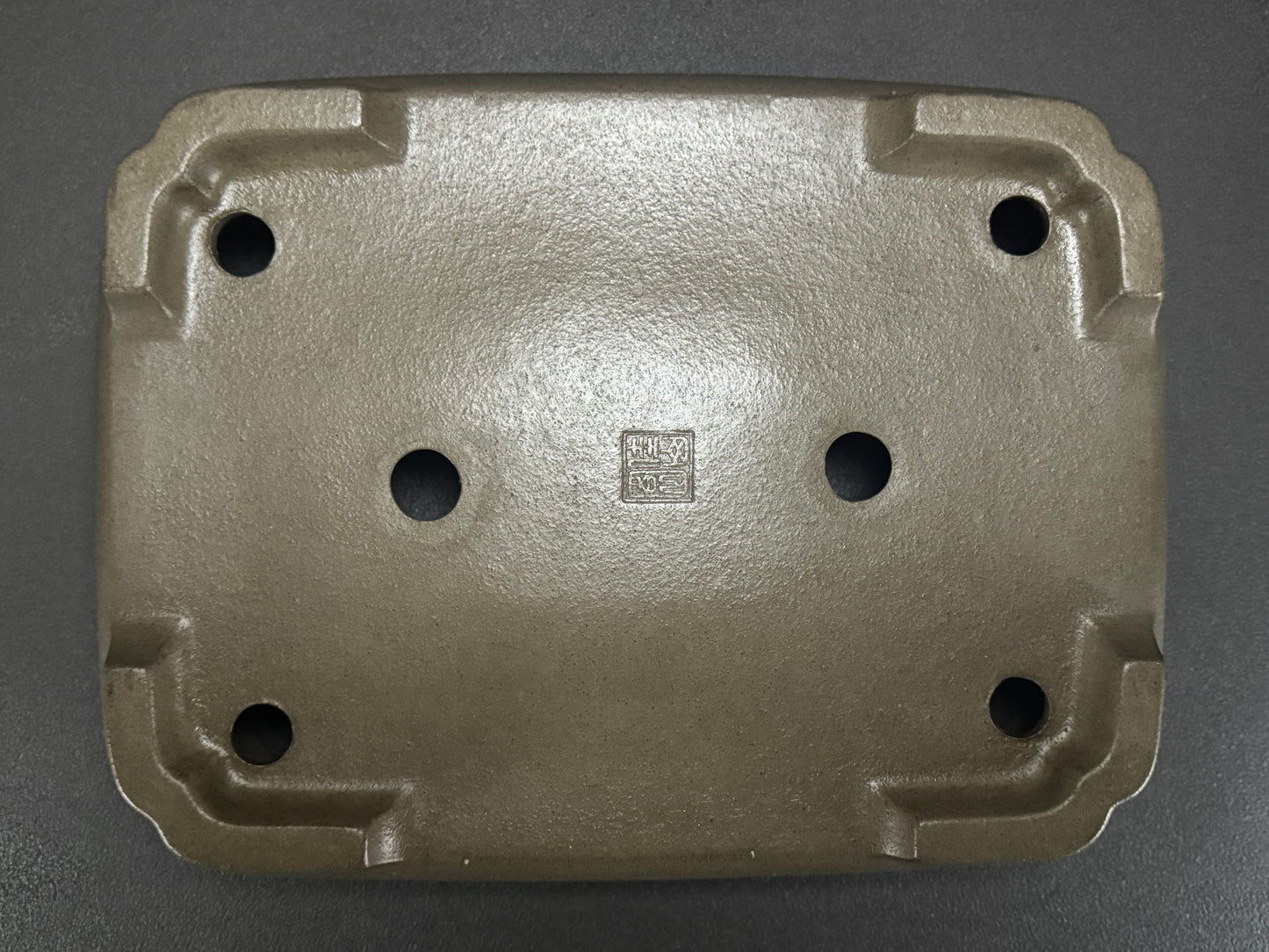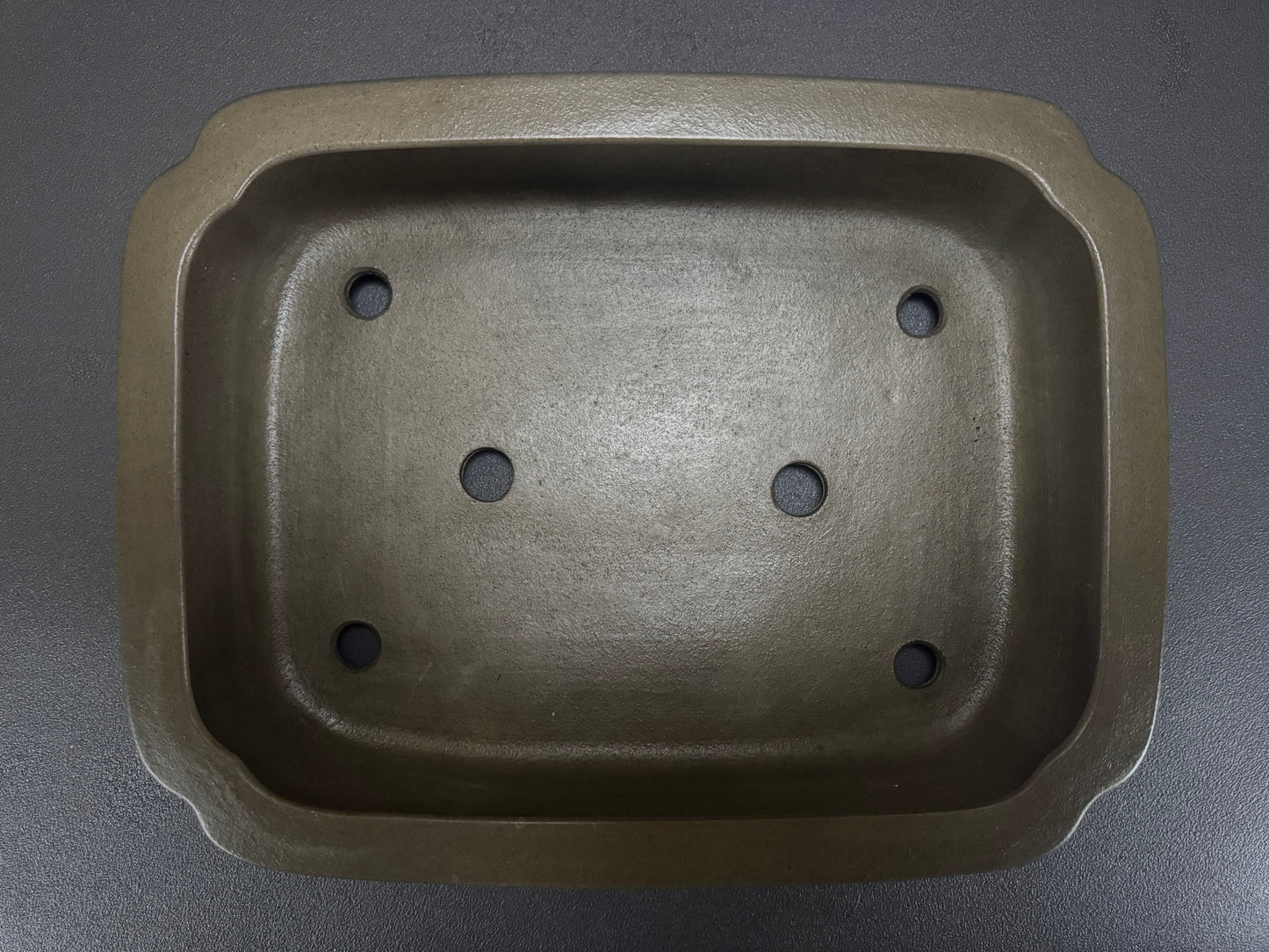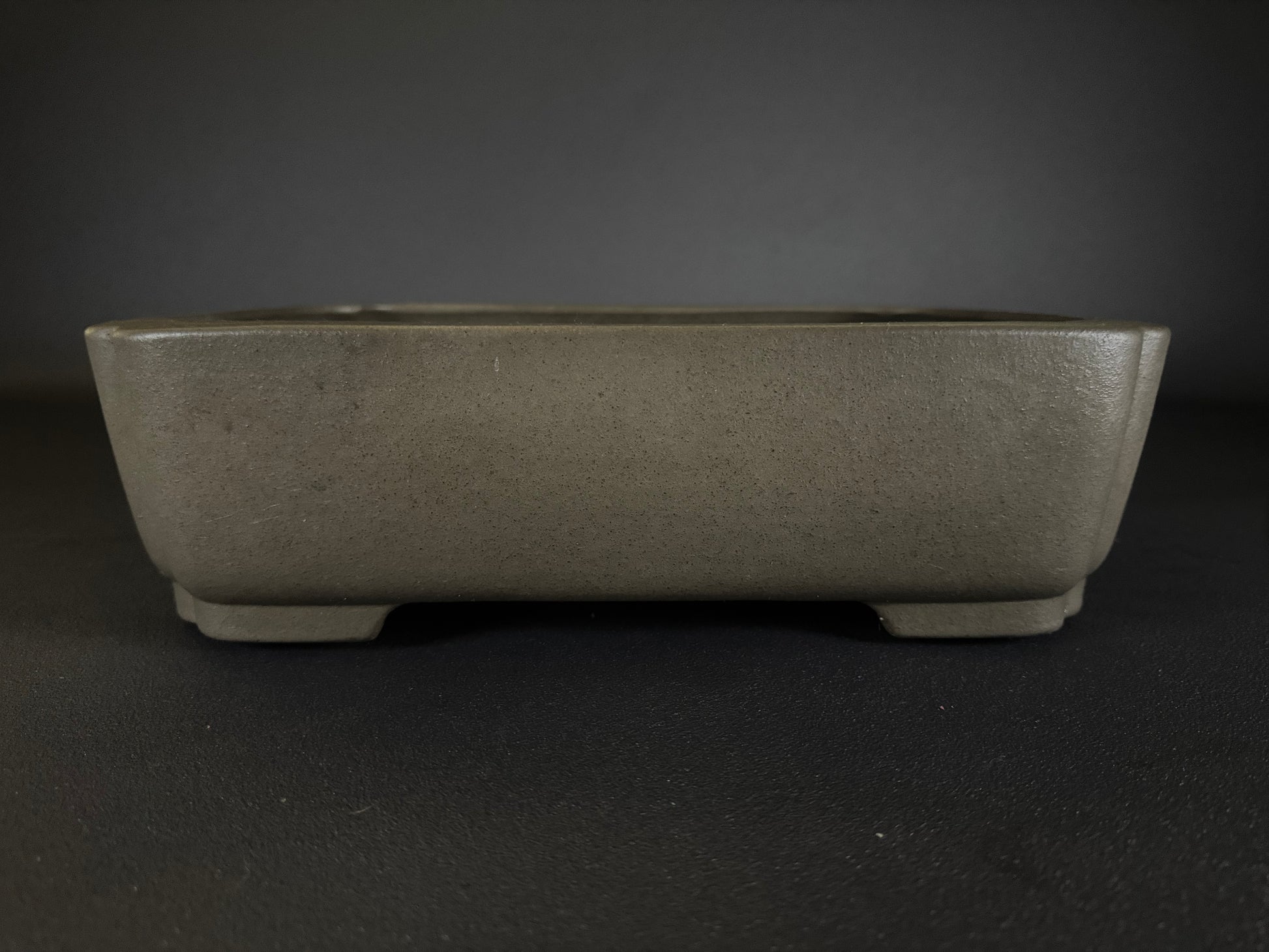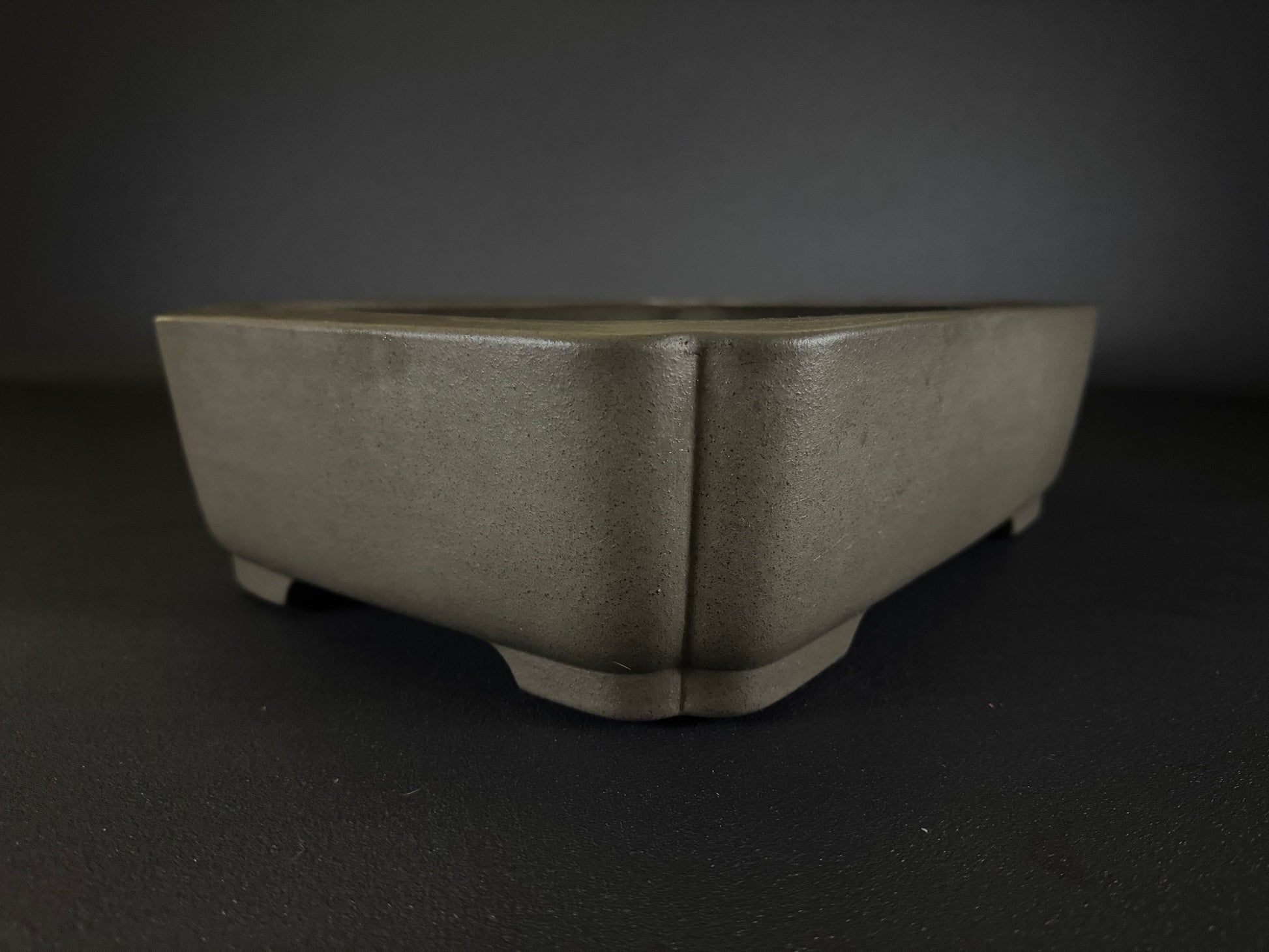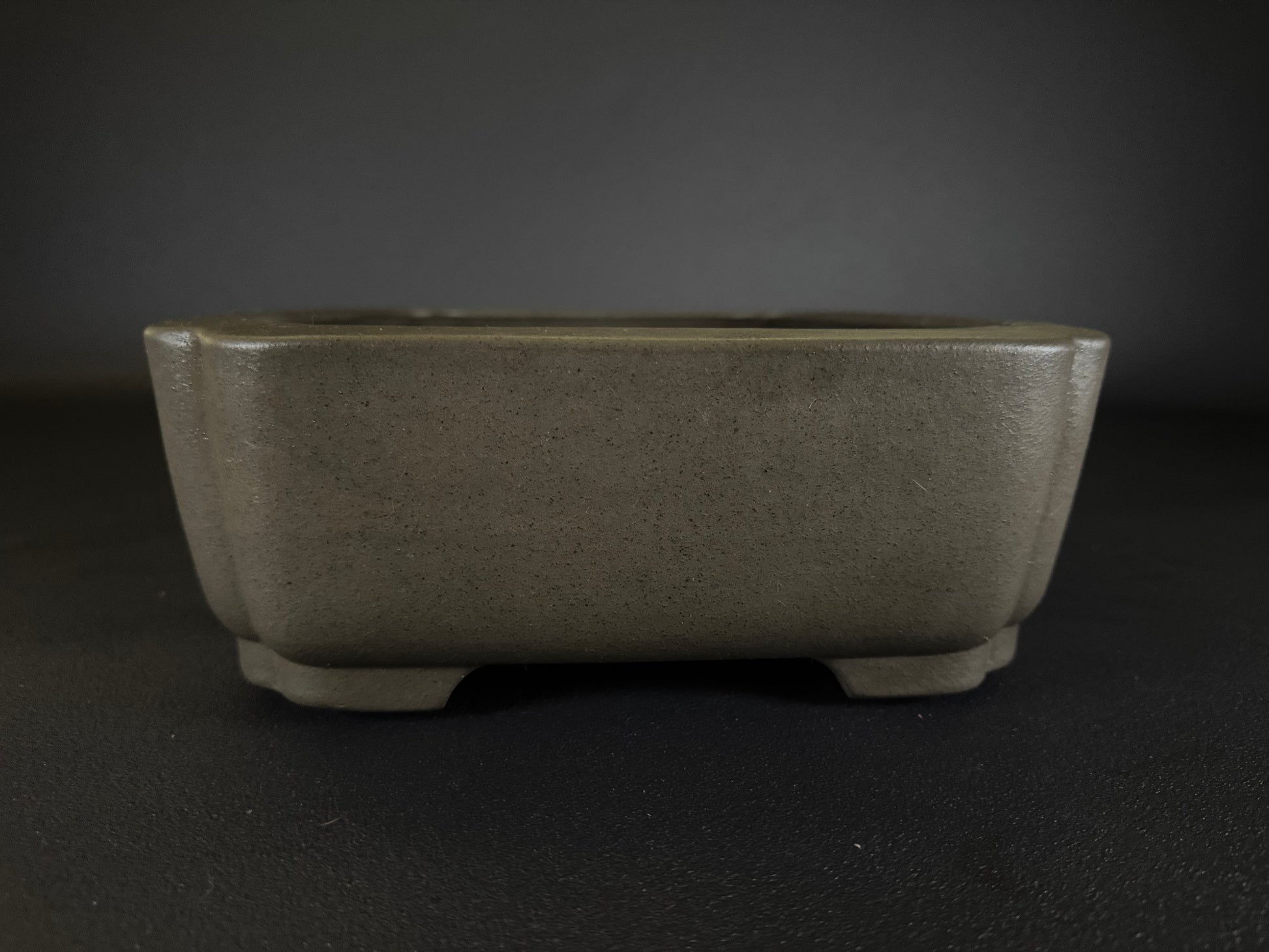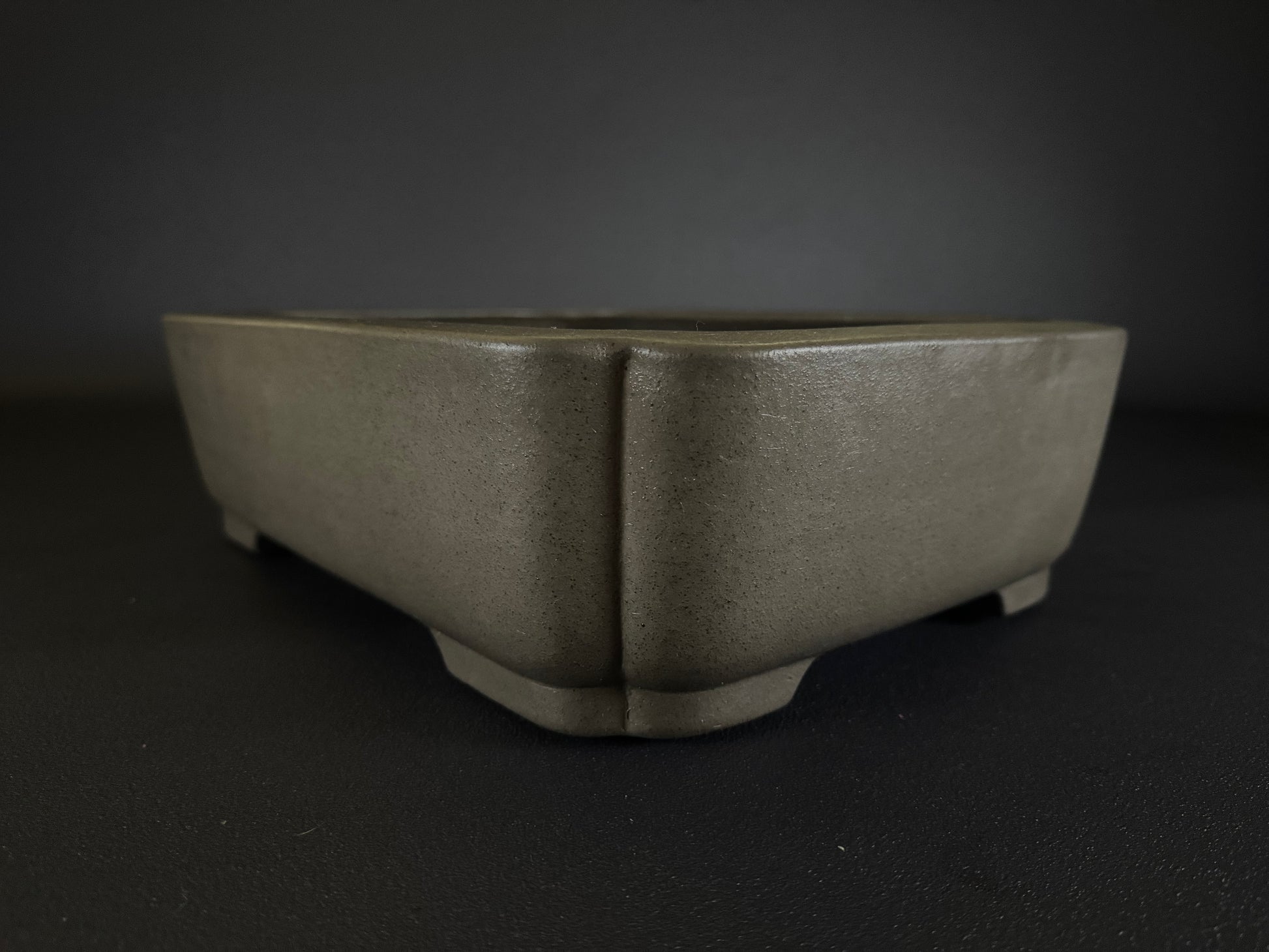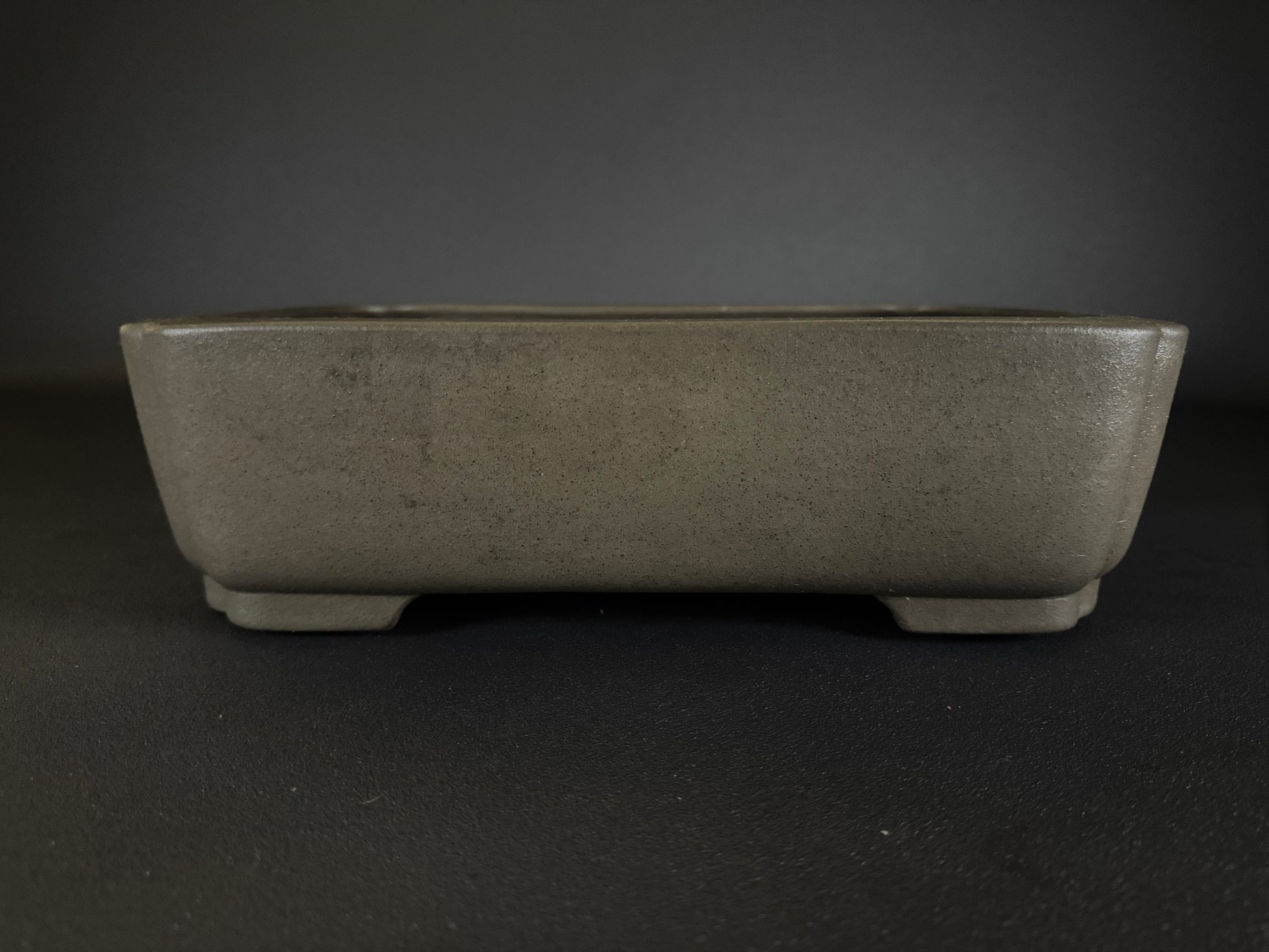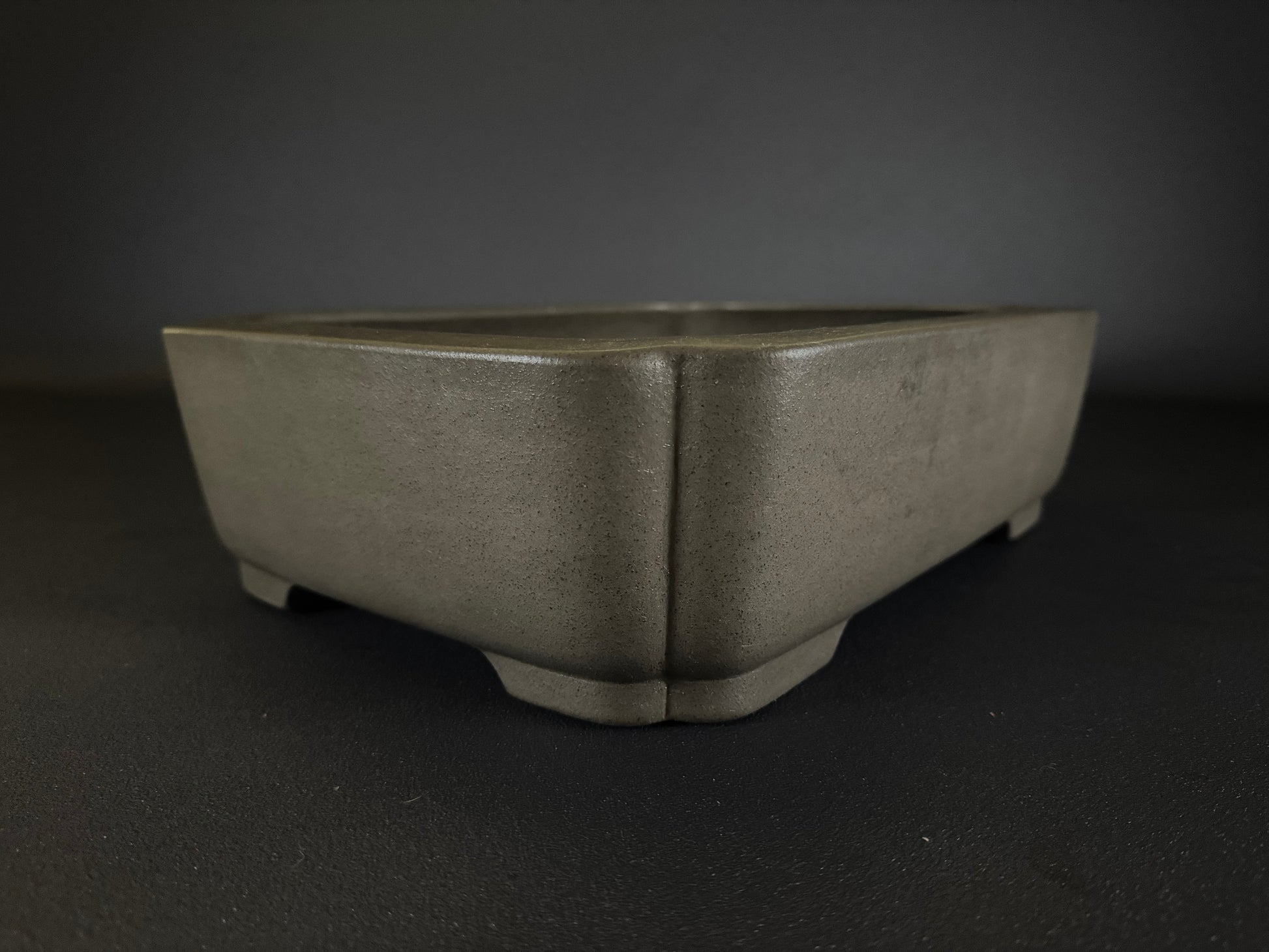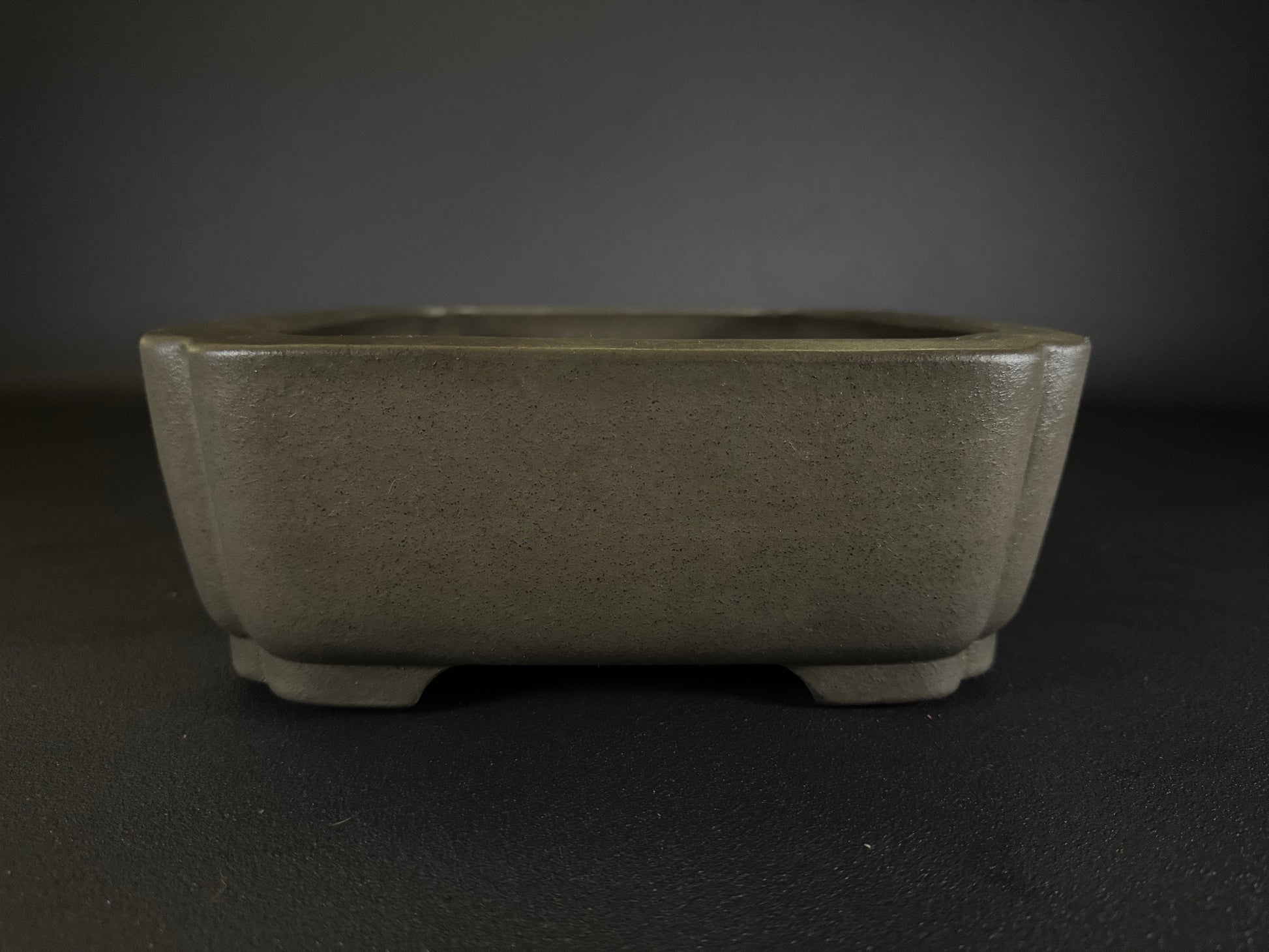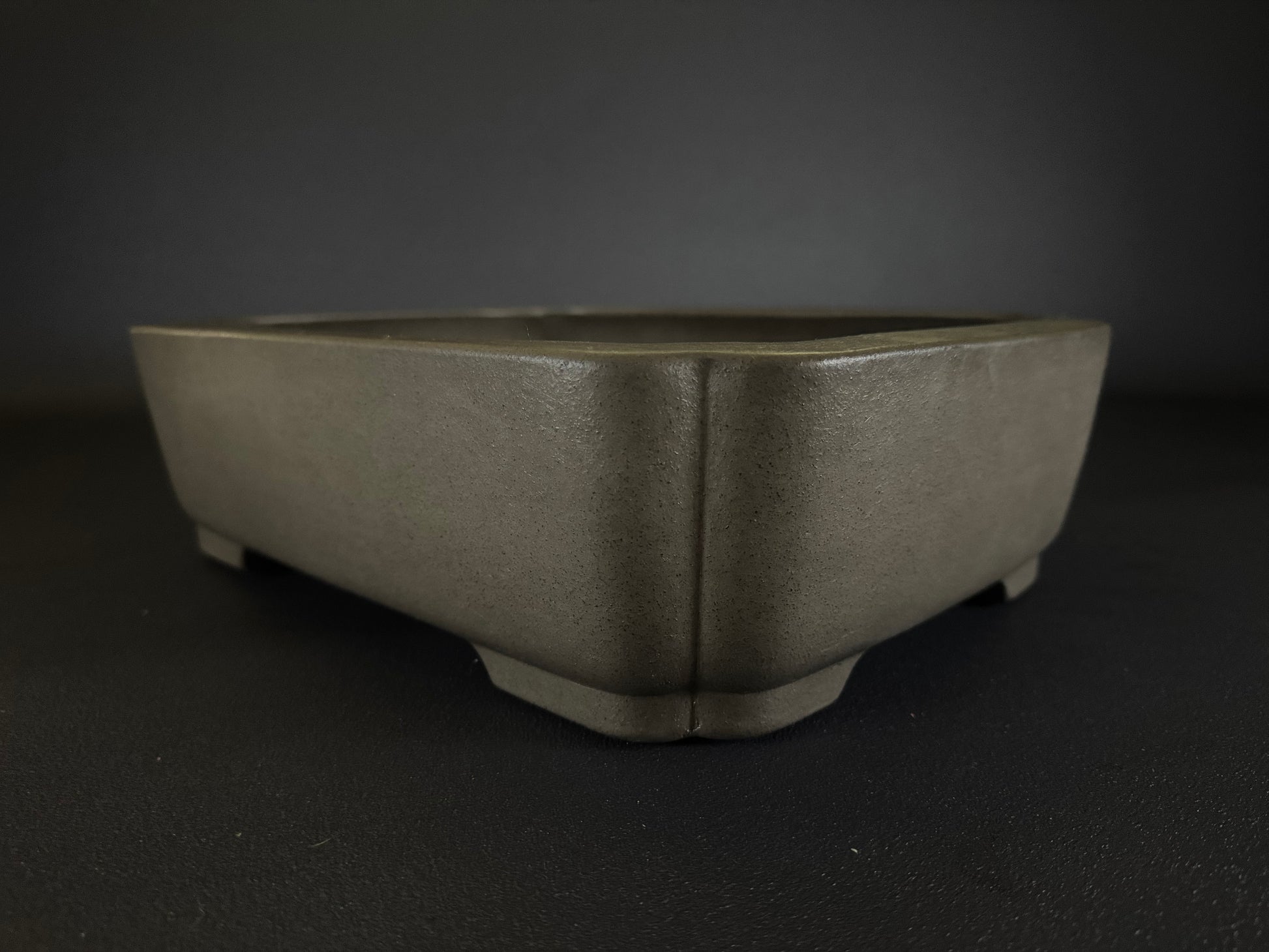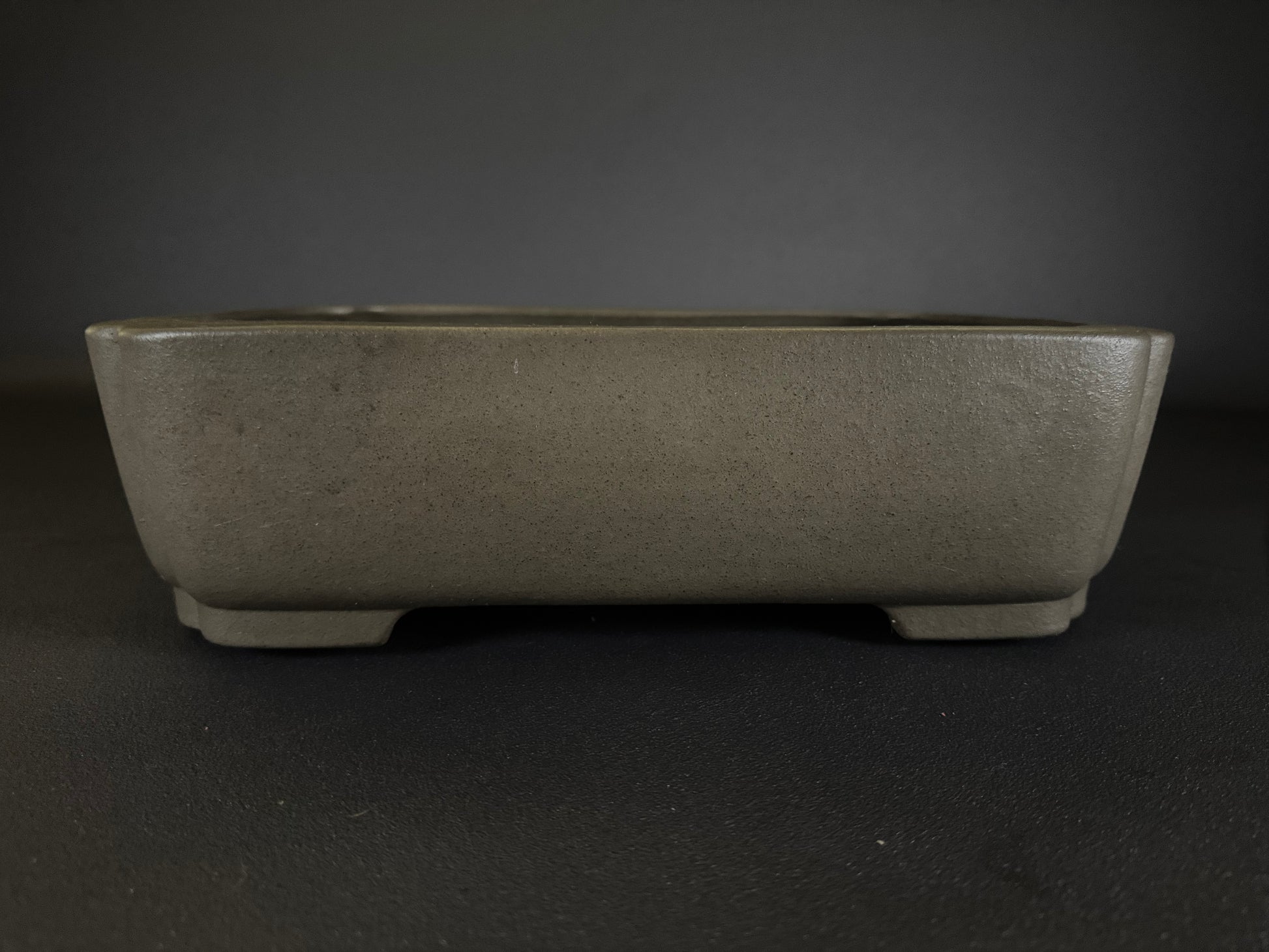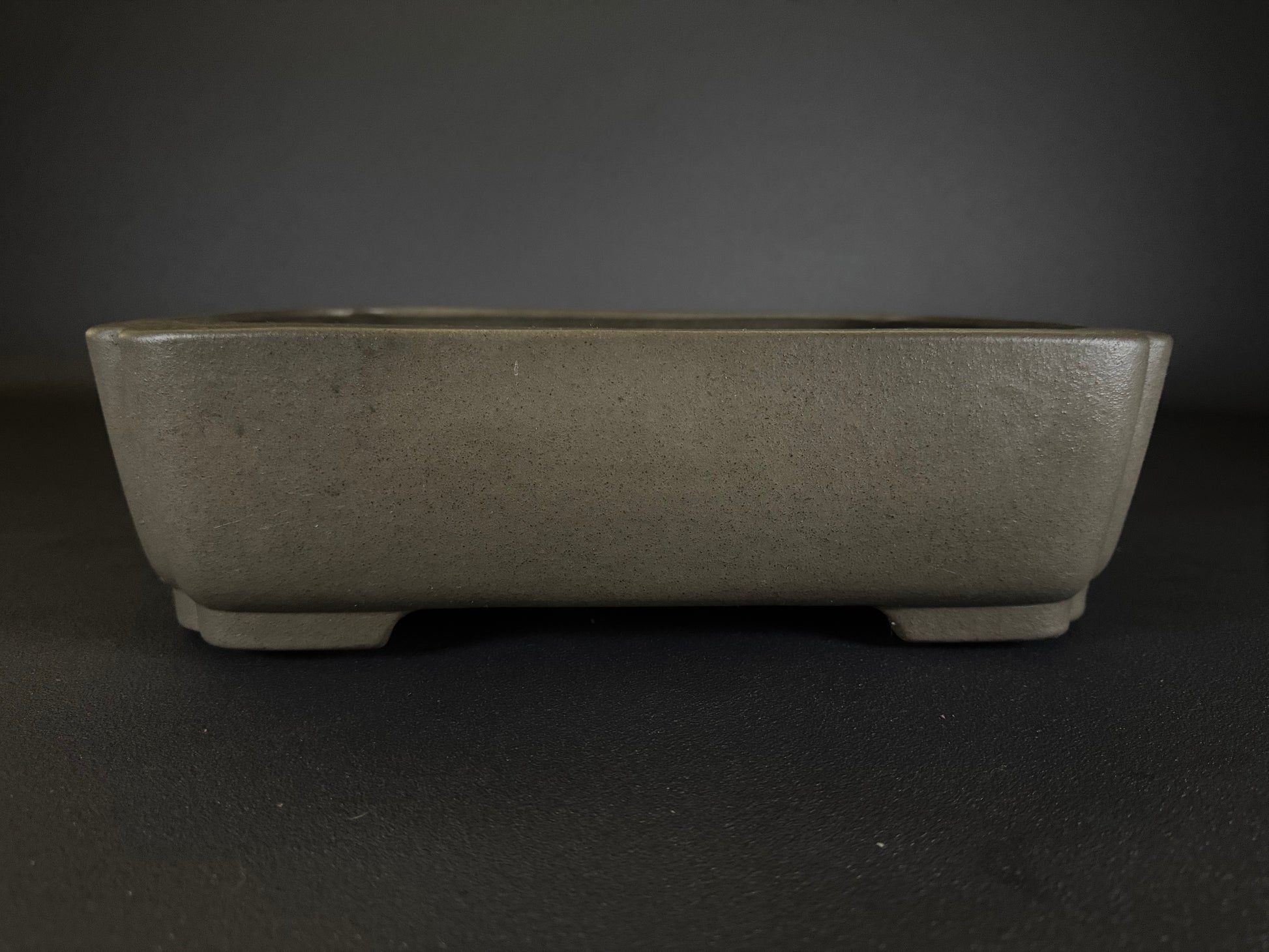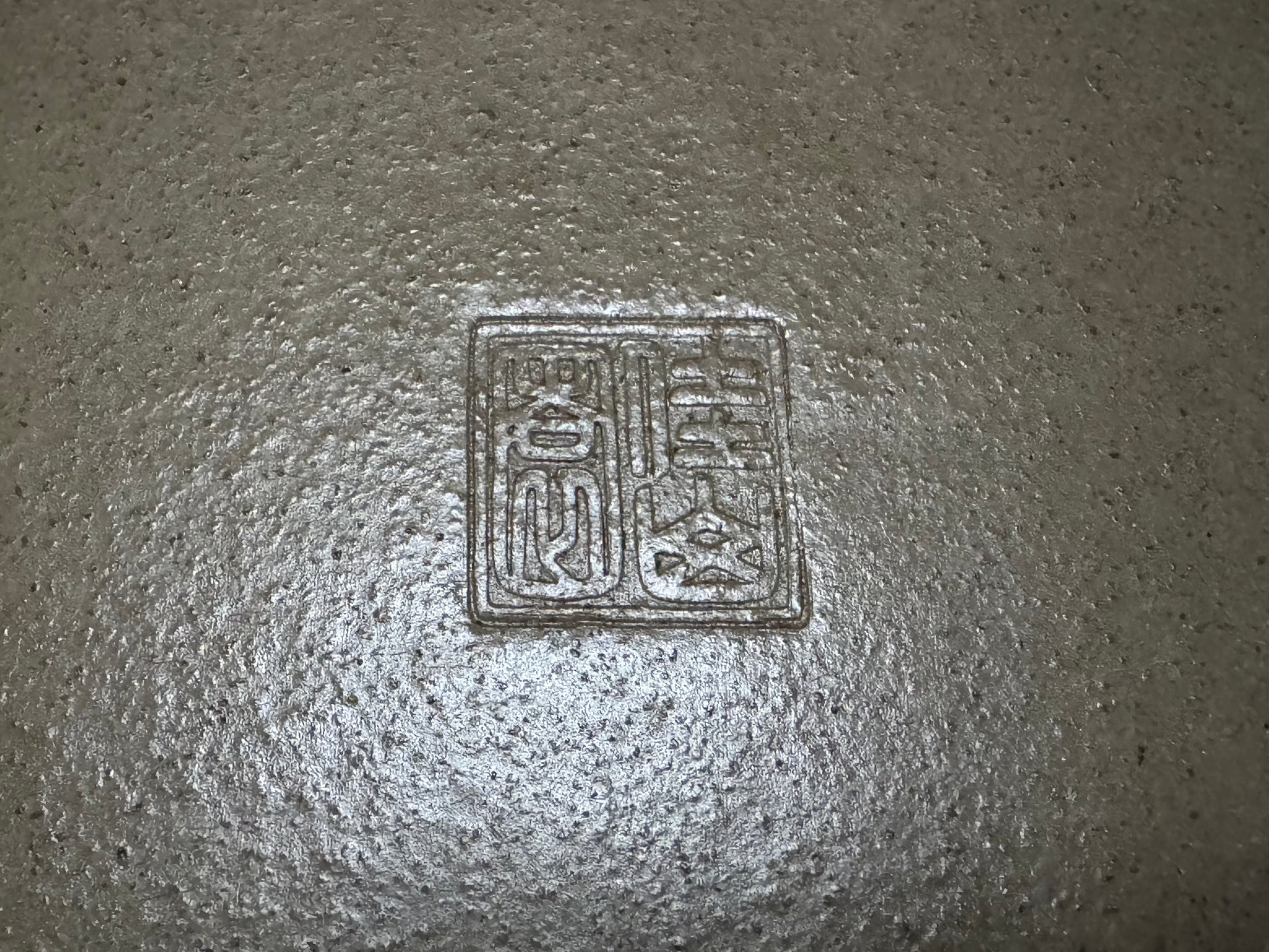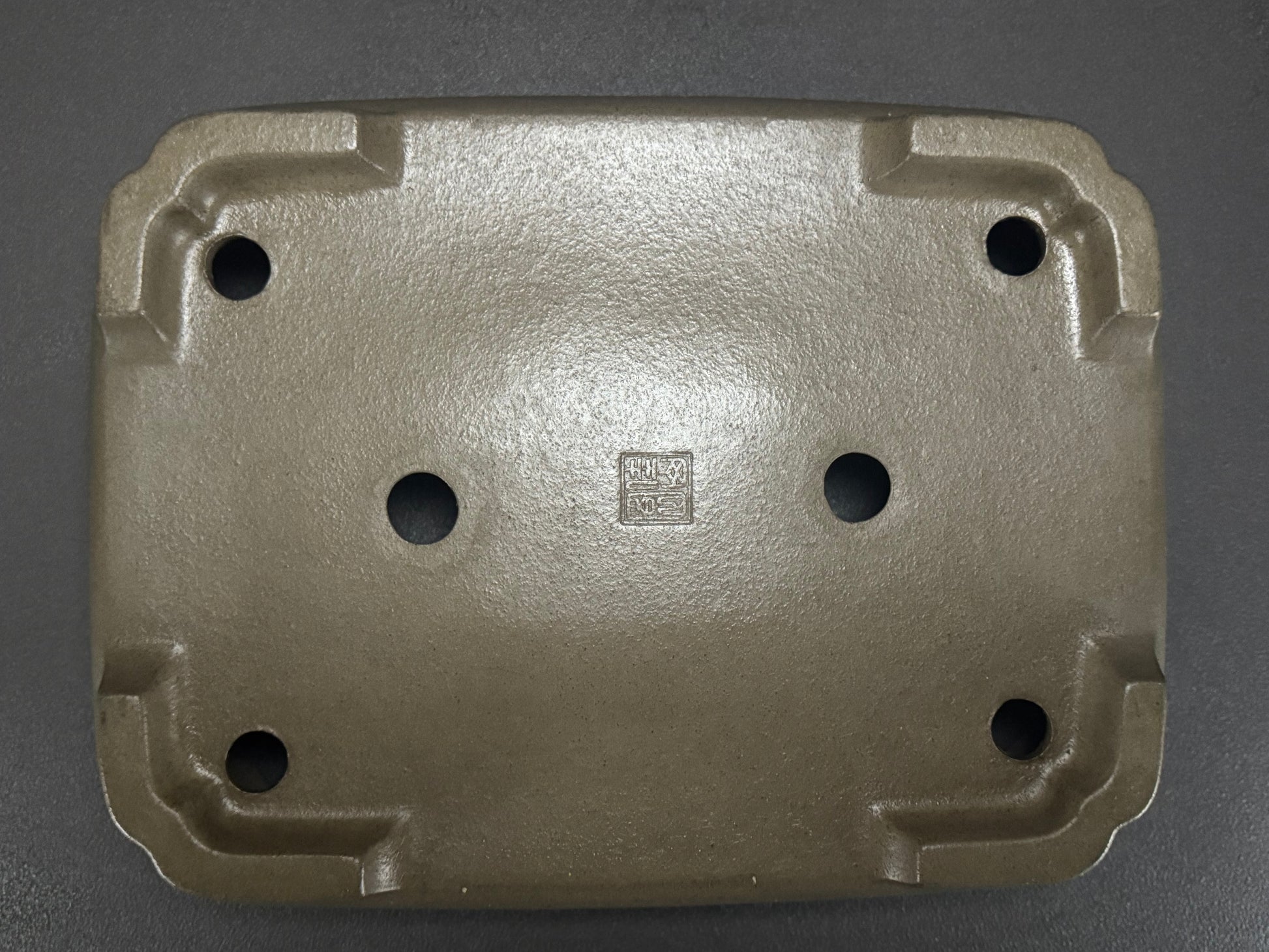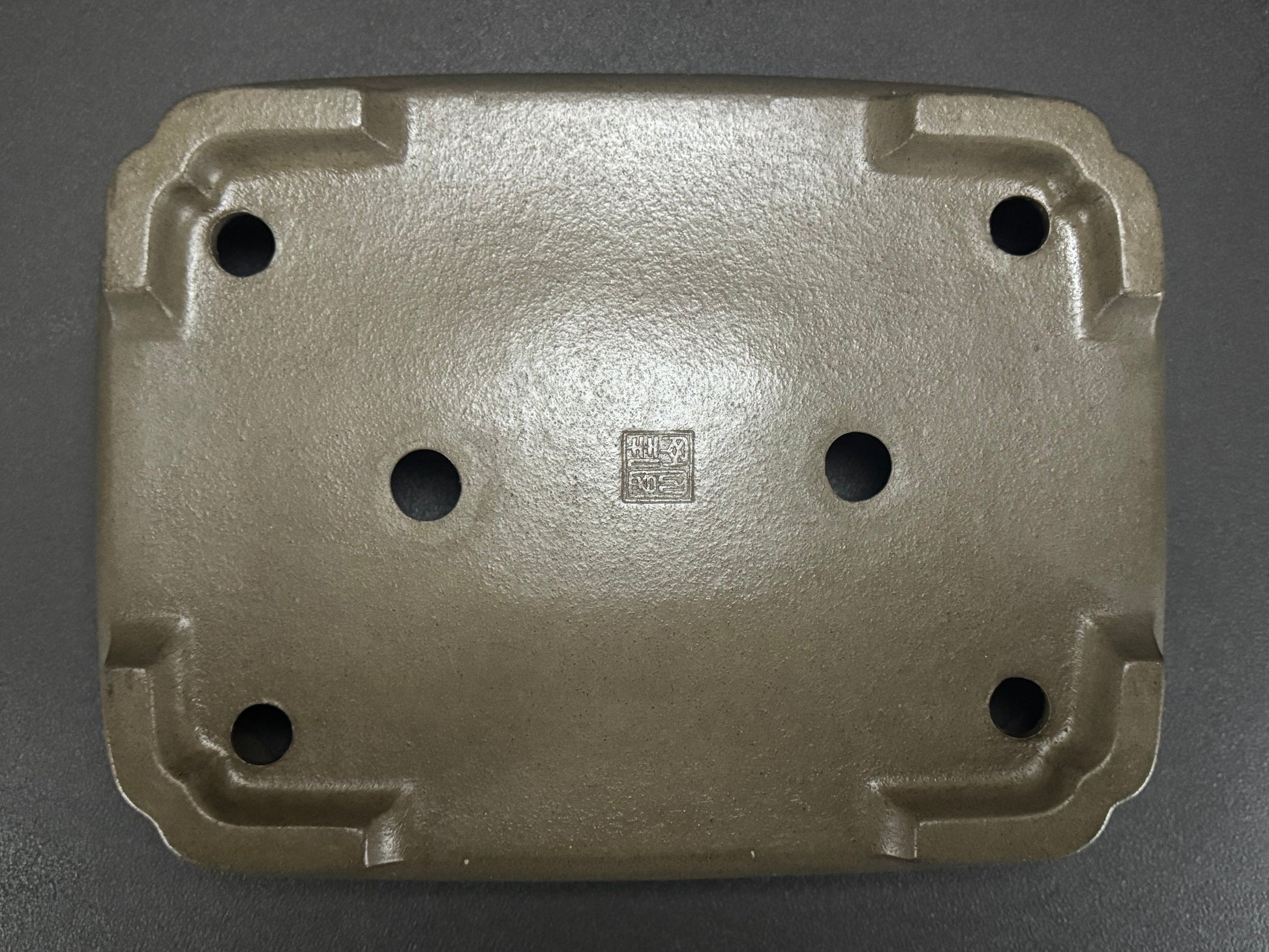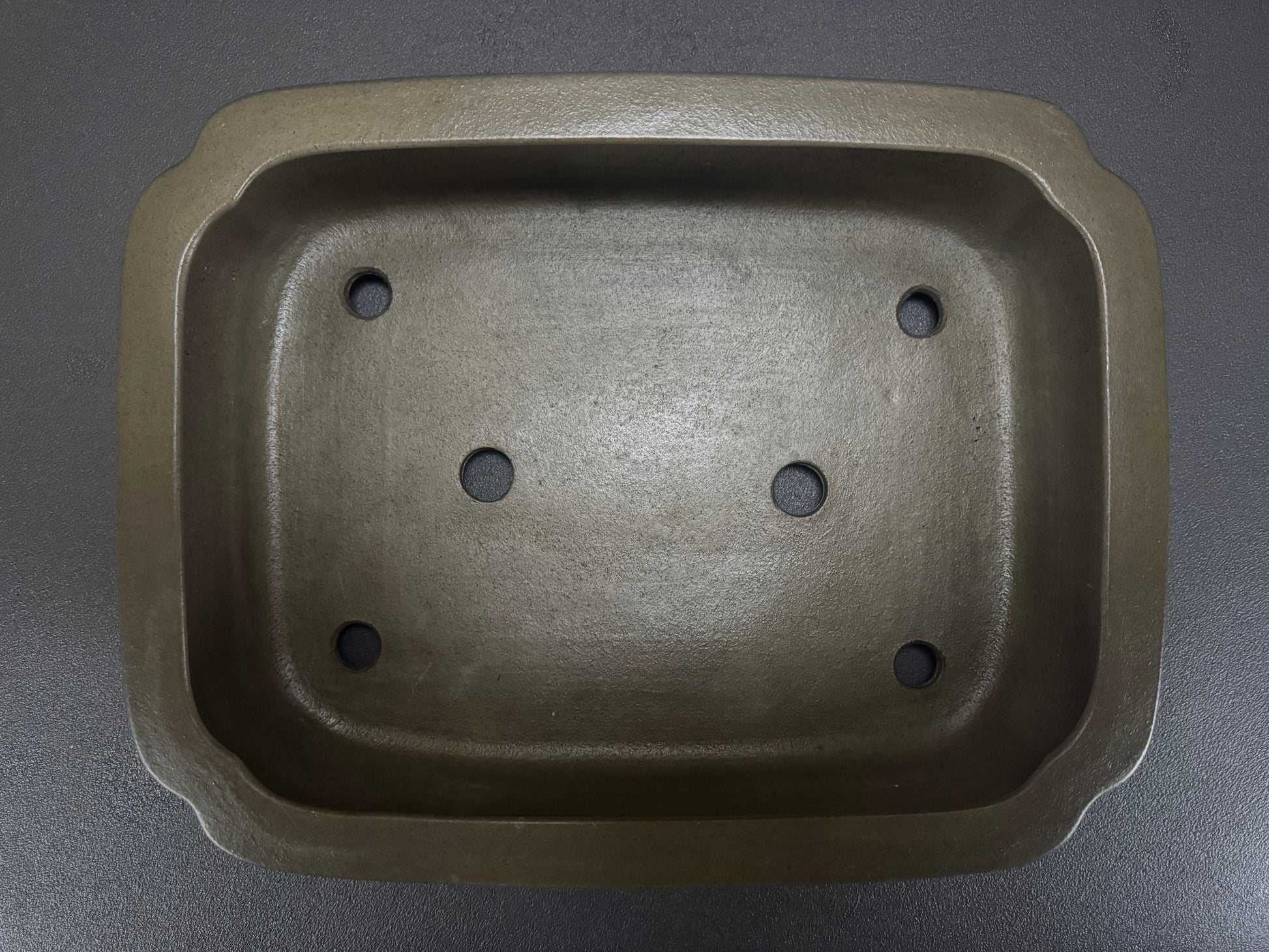Sugi Bonsai
KEIZAN Hisada 久山 桂山 - 常滑 –35.9cm Rectangular unglazed Flared-corners
KEIZAN Hisada 久山 桂山 - 常滑 –35.9cm Rectangular unglazed Flared-corners
Couldn't load pickup availability
KEIZAN Hisada 久山 桂山 - 常滑 – 35.9cm Rectangular unglazed Flared-corners
Product Details:
Region: Tokoname 常滑市
Kiln: HISADA
Potter: 2nd Gen Hisada Keizan (Sadao Hisada)
Description:
A fine vintage Tokoname-yaki (常滑焼) artisan bonsai pot by Keizan Hisada (久山 桂山).
This strong rectangular (長方形) form is crafted from excellent Tokoname clay, left unglazed (無釉) to highlight its natural speckled surface. The corners feature a subtle raised vertical line, creating an elegant and powerful stance.
The pot is designed with a clean internal rim (内縁), cut feet (切足), and six functional drainage/wiring holes (水抜き穴・針金穴) for practical use. The underside is finely finished, with well-formed feet and a centrally placed seal (印) of the potter, attesting to its authenticity.
External Dimensions: 35.9 x 27.7 x 9.8 cm
Condition: Excellent (優良な状態).
Free Shipping to mainland UK on this pot!
Keizan Hisada, also known as Sadao Hisada, is a renowned figure in the world of bonsai pottery, recognised for his exquisite craftsmanship and significant contributions to the art of bonsai. Born in 1930 in Tokoname, Japan, he is the son of Shizuo Hisada, who established the Hisada factory in 1929 primarily for brick production. Over the years, Keizan has transitioned from this foundation into creating some of the most sought-after bonsai pots, particularly unglazed varieties that highlight the natural beauty of clay.
Keizan is deeply connected to Tokoname, a city in Japan with a long history of pottery production, and his work is celebrated within that tradition.
He is particularly known for his unglazed bonsai pots, which are favoured for their ability to allow the natural characteristics of the clay to be appreciated.
Family Legacy:
Keizan comes from a family with a long history in pottery, inheriting and expanding upon his father's work in the field.
His pots are not just functional containers; they are considered works of art, reflecting a deep understanding of both pottery techniques and the aesthetics of bonsai.
Share
